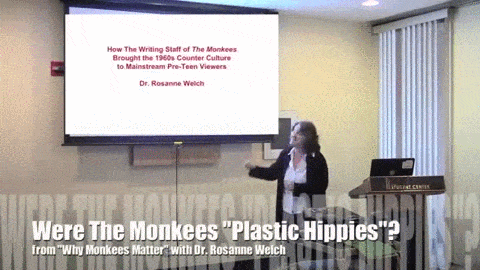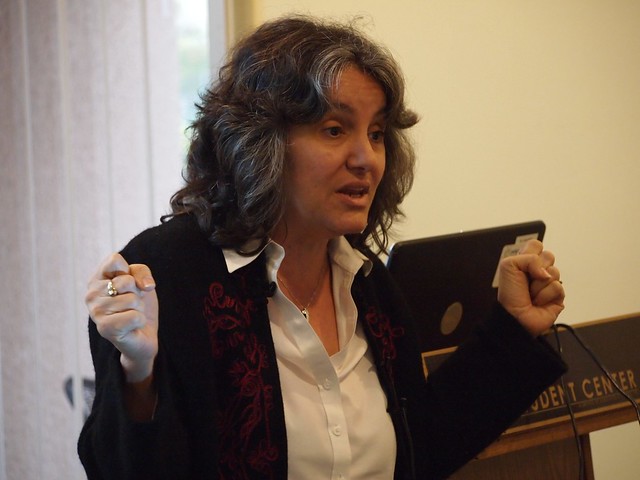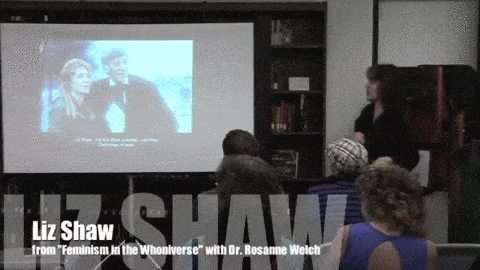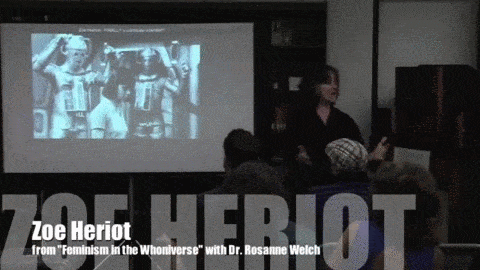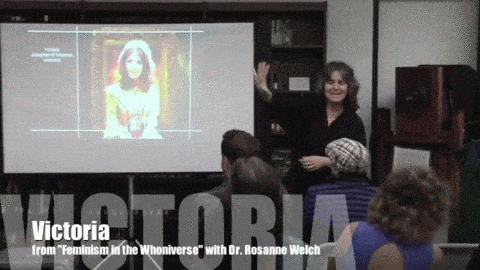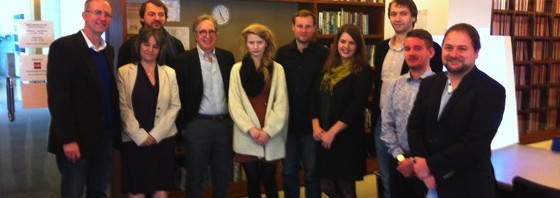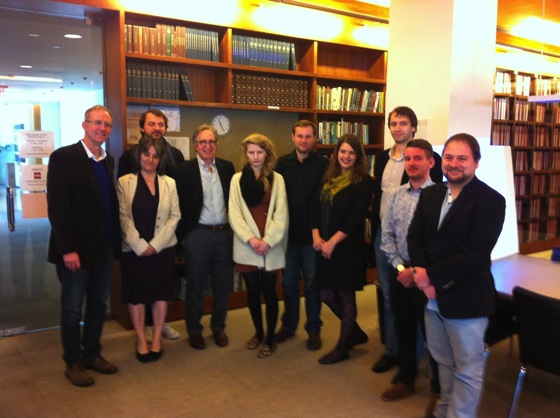A clip from this longer presentation – Doctor Who: Feminism in the Whoniverse with Dr. Rosanne Welch
Watch this entire presentation – Doctor Who: Feminism in the Whoniverse with Dr. Rosanne Welch
Dr. Rosanne Welch (https://rosannewelch.com) speaks on “Feminism in the Whoniverse” of Doctor Who, the BBC television program now in its 50th year. She reviews each of the Doctor’s female companions and speaks on how they are represented in the program and how they represented the women of their respective periods.
Transcript:
We move from Liz Shaw to Jo Grant — the second spy. Got to have another spy. Spies are cool. You know, again, you got the cute, kinky look going on. “Look at me I got the funny hair. I where the very patterned clothes. Ha Ha, I’m a humorous sidekick”. Even though you’re a spy. I don’t think of spies and funny at the same time…but they do. Again, we do though define her by her relationship to a man. She’s the daughter of a sports journalist. She herself can’t be a sports journalist, because back in the day there weren’t. No there actually are women who can report from sports and talk to you about a game and the strategy and what not, but in this case — so that’s as kind of cool as you get. Your Dad did that. Which I always think is very funny. Then, what’s fun about Jo Grant is in her grown-up years she appeared on the Sarah Jane show, the spin-off (Sarah Jane Chronicles) and so, this is fun because we keep this bible going. We keep this association with the characters so she got, later in her career to meet, of course, the Matt Smith version of The Doctor and we see her paired with Sarah Jane.
Feminism in the Whoniverse was presented at the Cal Poly Pomona University Library where Dr. Welch teaches in the IGE (Interdisciplinary General Education) program.
This is the 4th talk on various aspects of Doctor Who that Dr. Welch has presented. You can find these talks using the links below.
- Doctor Who and Culture
- Doctor Who Regenerated
- “How the Growing Popularity of the English Who-niverse Effected American TV” with Dr. Rosanne Welch
Subscribe to Dr. Welch’s YouTube Channel
Podcast: Play in new window | Download
Subscribe: RSS

